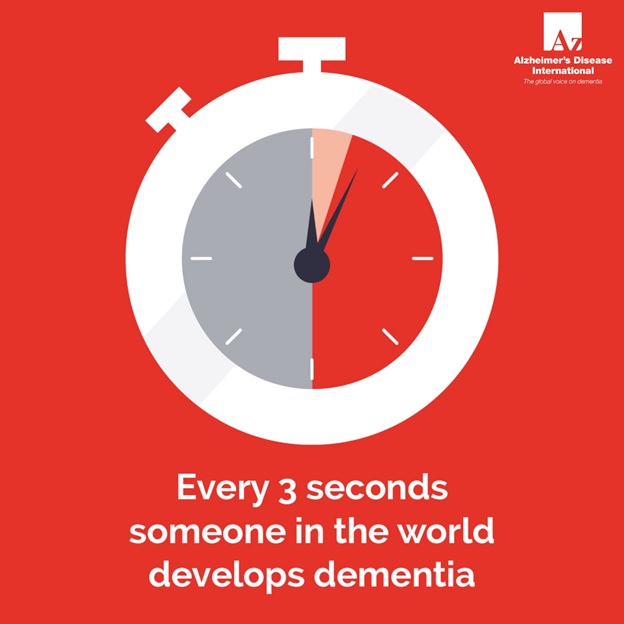LIFESTYLE NEWS - September is World Alzheimer's Month and ADI is encouraging everyone to know how to spot the warning signs of dementia and Alzheimer's and to seek advice and support which can potentially lead to a timely diagnosis.
ADI warns that new research suggests the neurological impact of Covid-19 can accelerate dementia symptoms and related brain pathology.
ADI’s Medical and Scientific Advisory Panel (MSAP), consisting of 75 global dementia experts, has formed a working group of scientists and medical professionals to help understand the magnitude of the problem and make recommendations on how to deal with it.
It is estimated that, woldwide, a dementia patient is diagnosed every three seconds. ADI CEO Paola Barbarino said forecasts estimate that dementia cases will rise from 55 million to 78 million by 2030.
Recent research indicates that some patients who had Covid-19 may experience an acceleration of Alzheimer's Disease or Alzheimer's Disease-related dementia symptoms and pathology. This research shows that serum biomarkers of neuronal injury, neuroinflammation and Alzheimer’s disease correlate strongly with the presence of neurological symptoms in Covid-19 patients.
Barbarino said over the short-term, dementia rates may drop temporarily as a result of the high number of deaths of people with dementia due to Covid-19, with between 25-45% of all Covid-19 deaths estimated to be of those with dementia. Longer-term, numbers of people with dementia could rise significantly due to the neurological impact of Covid-19.
ADI MSAP chair and internationally renowned cognitive neurologist, Dr Alireza Atri, says they are particularly concerned about the neurological symptoms of long Covid such as loss of taste and smell, as well as cognitive problems like ‘brain fog’, and difficulties with concentration, memory, thinking and language. “Covid-19 can cause damage and clotting in the brain’s microvessels, immune dysfunction and hyperactivation, inflammation, and, last but not least, direct viral brain invasion through the olfactory pathways.
“With the blood brain barrier damaged, our brain’s fortress is breached. Covid-19 opens the gates in the same way that the Greek soldiers hiding in the wooden horse did. It gives easier access to things that can harm your brain.
“While there is still a way to go in understanding this, we know that anything that diminishes your cognitive reserve and resilience is going to allow neurodegenerative processes to accelerate, which can cause symptoms of neurological disorders, such as dementia, to show earlier.”
Research in this space so far is limited but growing.
During the Great British Intelligence Test in 2020 over 80 000 people participated in an online clinical assessment. Researchers found that people who had recovered from Covid-19, including those no longer reporting symptoms, exhibited significant cognitive deficits versus controls.
Barbarino said it is important that people are aware of the possible link between long Covid and dementia, so they know to self-monitor for symptoms and catch it in its tracks.


'We bring you the latest Garden Route, Hessequa, Karoo news'















